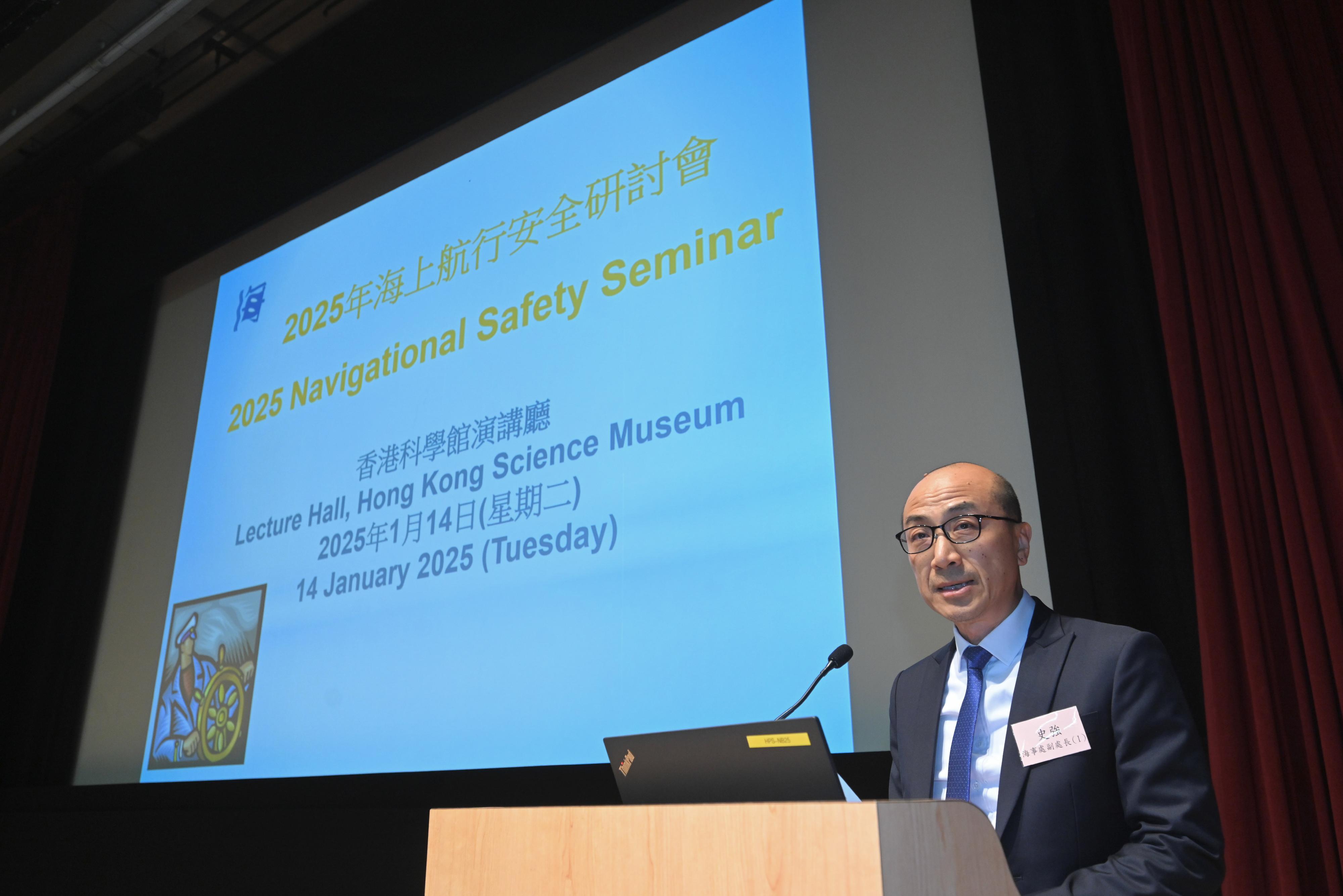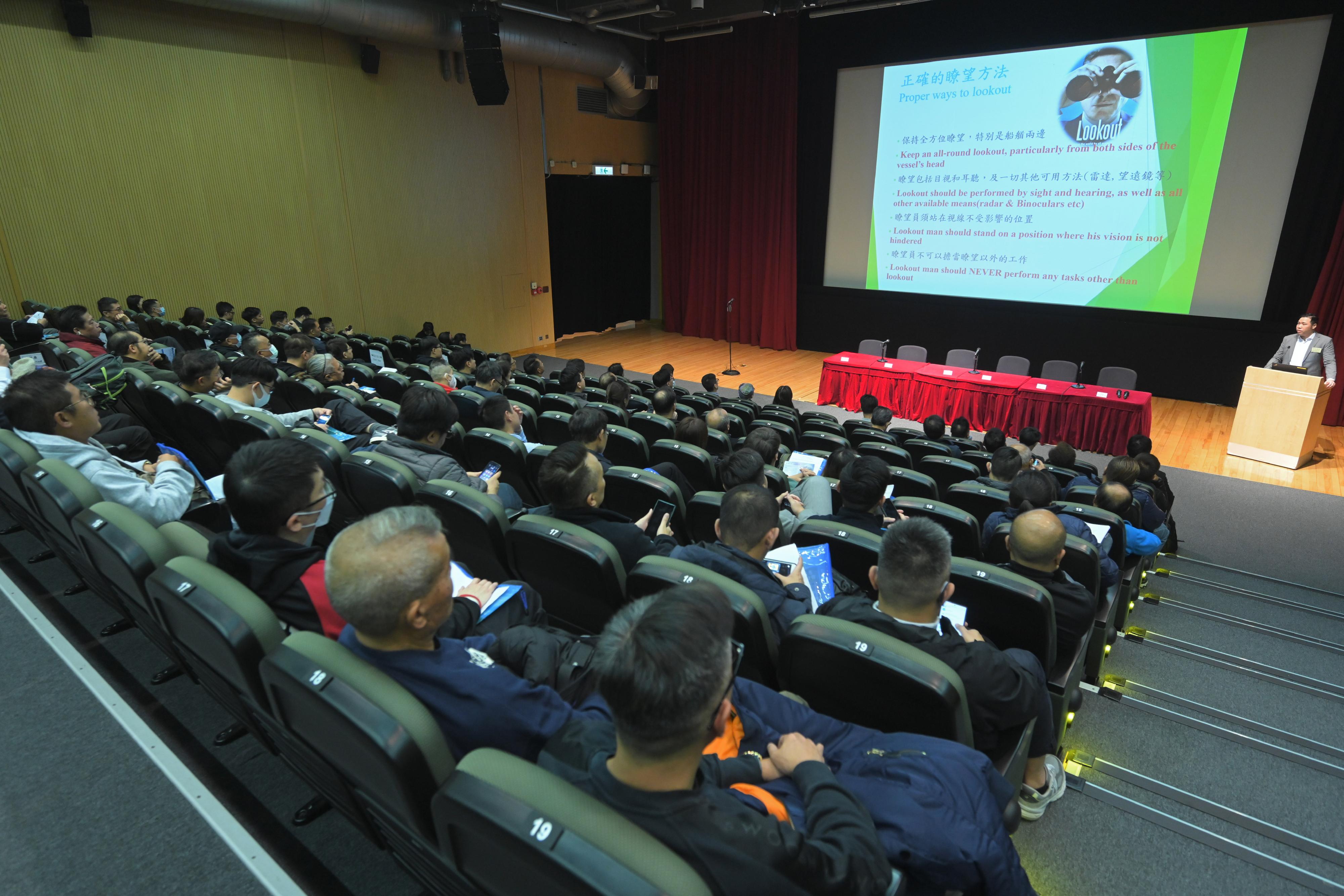Marine Department hosts seminar to promote navigational safety (with photos)
The Marine Department (MD) hosted the Navigational Safety Seminar 2025 today (January 14) to reinforce and enhance the awareness of navigational safety among industry members. Deputy Director of Marine Mr Shi Qiang reminded coxswains and persons-in-charge of vessels that they have the responsibility to strictly comply with marine legislations to uphold safety at sea.
Mr Shi pointed out that coxswains and crew members should take appropriate and adequate safety precautions, and draw up contingency arrangements before setting sail. Vessels should have sufficient life-saving and fire-fighting equipment. Coxswains and crew members should ensure that vessels, engines and equipment are maintained in conditions that are suitable for navigation. In addition, they should acquaint themselves with the contact numbers of the vessel traffic control unit and units that provide emergency services, and be fully aware of the latest weather conditions and related MD notices.
To avoid accidents caused by fatigue at work, owners and operators of all local vessels must ensure that all crew members, including coxswains, have sufficient rest. Coxswains and crew members should also strengthen lookouts, sail at safe speeds and comply with regulations for preventing collisions while navigating in restricted visibility.
During major events at sea, owners and operators of all local vessels should check again and reconfirm that the operating licence, the certificate of survey and the third-party risk insurance are valid before setting sail. Moreover, coxswains and crew members must ensure that children on board are accompanied by an adult and wear a lifejacket at all times, as well as keep a passenger and crew list on board for emergency purposes. The MD will enhance enforcement work and initiate prosecution if any vessel fails to meet these requirements.
To enhance marine safety and protect the safety of persons on board a vessel, a new legislation, the Marine Safety (Alcohol and Drugs) Ordinance, came into operation on January 1 this year. The new legislation states that any person involved in operating a vessel, including those who control, navigate or pilot a vessel, or perform designated duties, i.e. relating to the safety and the security of the vessel and the protection of the marine environment on board a vessel that is underway, will commit an offence if the person is under the influence of alcohol or drugs to the extent of being incapable of having proper control of the vessel, or has alcohol exceeding the prescribed limits in the person’s body, or has any specified illicit drugs in the person’s body. The maximum penalty upon conviction is a fine of $25,000, three year’s imprisonment, and disqualification of relevant qualifications for life.
In addition, the Merchant Shipping (Prevention of Pollution by Garbage) Regulation came into operation on May 1 last year. It changed the tonnage requirement for a ship that must keep a Garbage Record Book (GRB) and make entries for certain discharges of shipboard garbage from 400 gross tonnage (GT) to 100 GT. Each discharge of shipboard garbage, whether into the sea or to a reception facility or another ship, shall be recorded in the GRB. The person in charge shall sign for the entry on the date of discharge. The coxswain shall sign on each completed page of the GRB.
The MD organises education seminars and publicity campaigns to promote marine safety on a regular basis. Today’s annual seminar was attended by about 180 representatives from the shipping industries, coxswains and operators of local vessels, and representatives of marine works projects. The issues discussed included international regulations for preventing collisions at sea and their implementation in Hong Kong waters; implementation and enforcement of the Marine Safety (Alcohol and Drugs) Ordinance; introduction of amendments in the 2024 Merchant Shipping (Prevention of Pollution by Garbage) (Amendment) Regulation; matters requiring attention for passenger vessels during berthing at piers, as well as case analyses of marine accidents.



